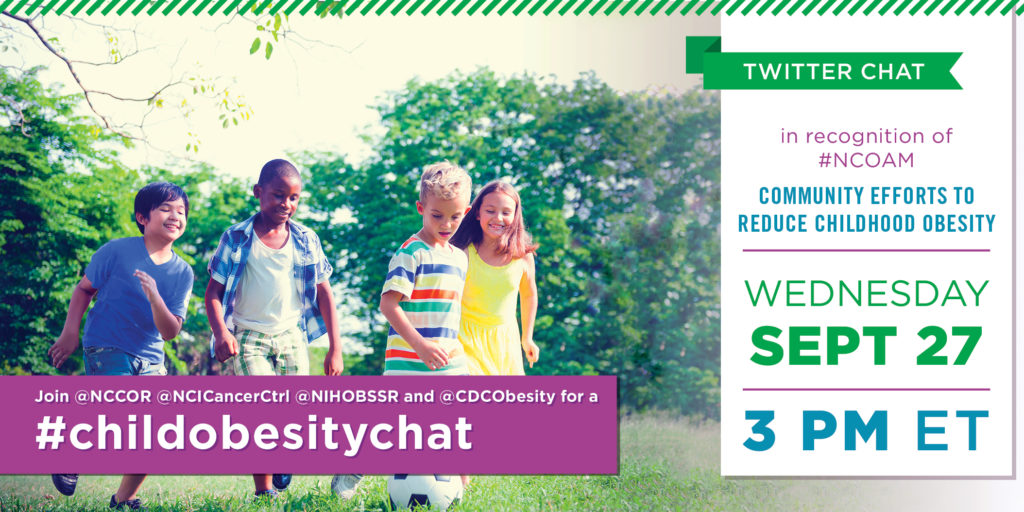Communities are at the forefront of implementing strategies and programs to reduce childhood obesity. NCCOR is accelerating progress by supporting efforts to learn from communities, sharing evidence and lessons learned, and creating resources and tools to advance community-level approaches.
To commemorate National Childhood Obesity Awareness Month in September, we will share various ways that NCCOR helps communities evaluate their progress in reducing childhood obesity. On September 27, NCCOR will host a Twitter chat and highlight the following projects.
The Childhood Obesity Declines project was started to better understand the possible drivers and contributors that may influence reported declines in childhood obesity rates and to explore how these may be related to health promotion efforts. In March 2016, NCCOR released community summary reports from four sites across the country: Anchorage, AK, Granville County, NC, New York, NY, and Philadelphia, PA.
A top priority for NCCOR is to encourage the consistent use of high-quality, comparable measures and research methods across childhood obesity prevention and research. To achieve this aim, NCCOR developed the Measures Registry and the Measures Registry User Guides. Each Guide includes case studies that walk users through the process of using the Measures Registry to select appropriate measures. The case studies include research questions that communities might have for measuring childhood obesity reduction efforts in their communities, such as the implications of changes to food offered in vending machines, starting a farmer’s market obesity treatment program, and improving streetscapes and parks around schools.
NCCOR also supported the Healthy Communities Study, which aimed to understand how diet, physical activity, and body mass index are related to aspects of community policies and programs. Researchers recruited 5,138 children and their families in 130 demographically diverse communities across the nation from 2013 to 2015. Initial study findings were published in the American Journal of Preventive Medicine in 2017.
NCCOR has worked closely with USDA to rapidly develop and update the SNAP-Ed Toolkit—a portfolio of evidence-based obesity strategies and actionable tools. The online toolkit offers a robust group of effective interventions designed and updated to help states and local communities implementing SNAP identify evidence-based and emerging obesity prevention programs and strategies. In addition, NCCOR collaborated with USDA’s Food and Nutrition Services, the Association of SNAP Nutrition Education Administrators, and more than 28 states to develop the SNAP-Ed Evaluation Framework: Nutrition, Physical Activity, and Obesity Prevention Indicators and Interpretive Guide.
Learn more about community efforts to reduce childhood obesity, and NCCOR projects and resources, during NCCOR’s Twitter chat on September 27, 2017.
Register to participate in the Twitter chat: http://vite.io/4eylwnwj9s
Read more about NCCOR projects: https://www.nccor.org/projects/

